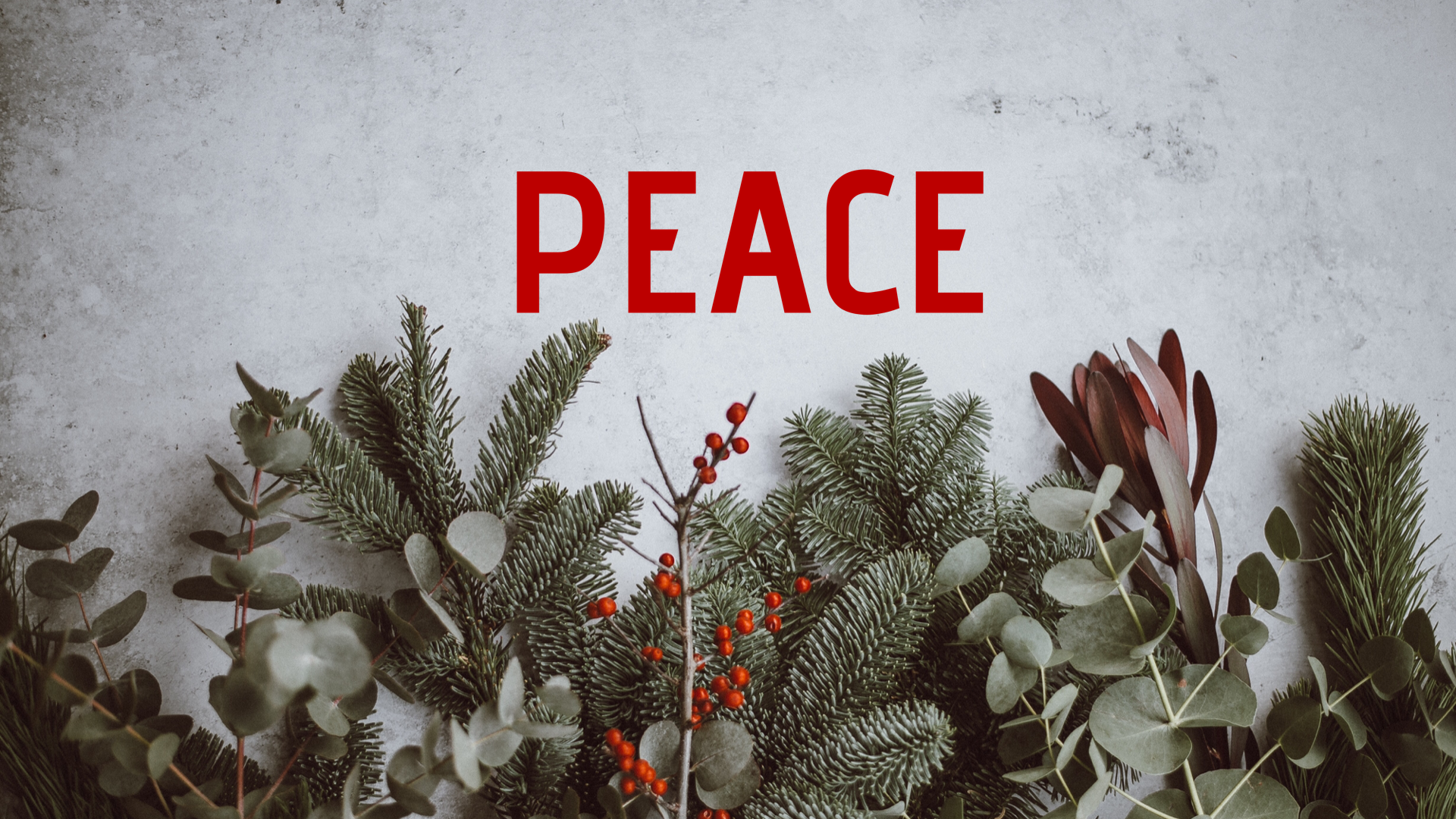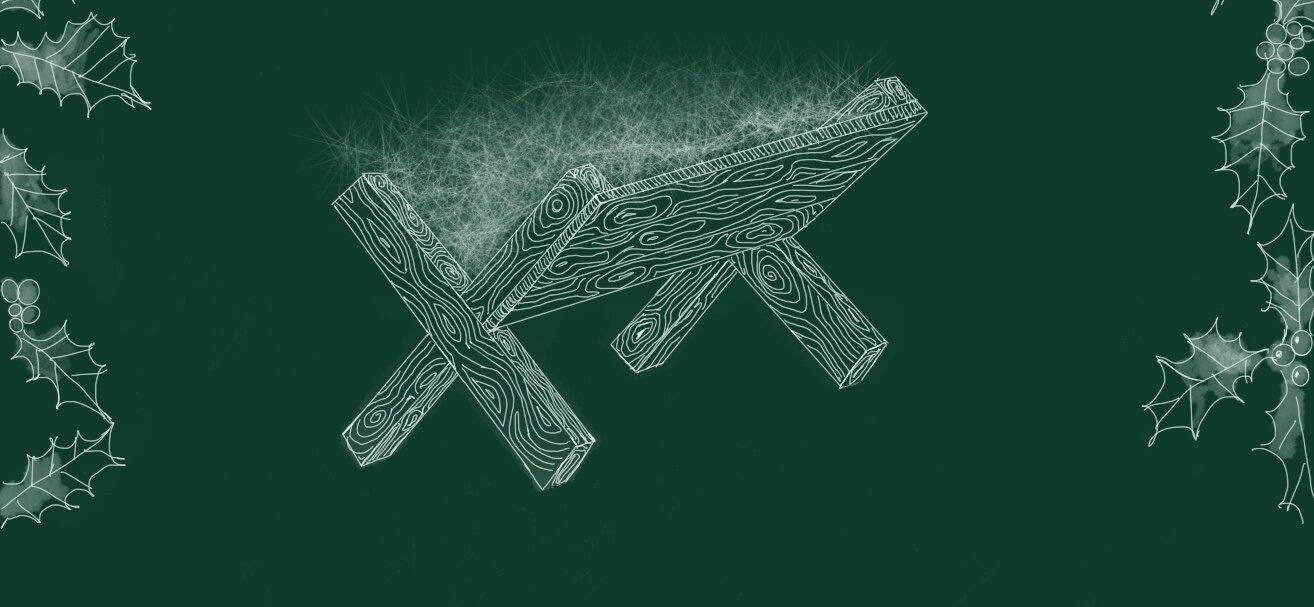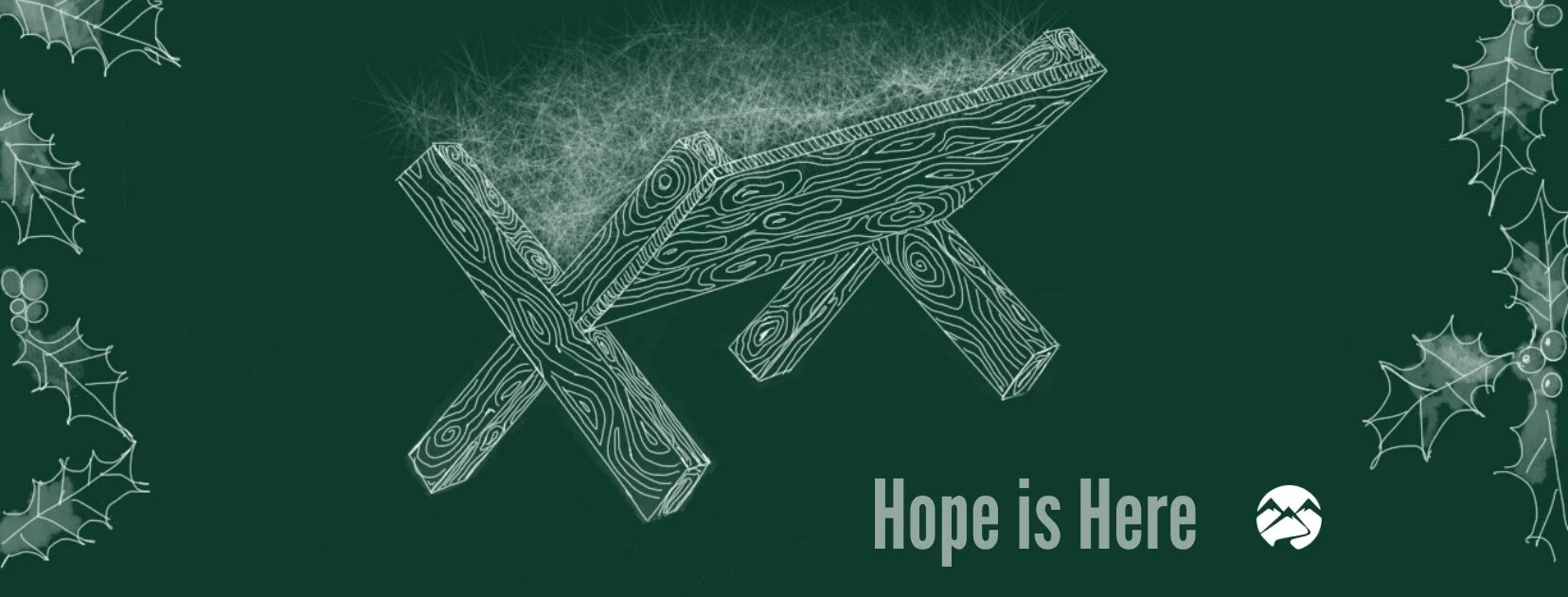Oh come now, hail his arrival,
The God of Creation.
Royalty robed in the flesh he created.
Jesus the maker has made himself known.
All hail the infinite infant God!
These words, if put to papyrus in the first century, would encapsulate what John was expressing in the beginning of his Gospel account:
“The Word became flesh and dwelt among us. We observed his glory, the glory as the one and only Son from the Father, full of grace and truth.” John 1:14
Jesus - the Maker- the Word. He came, he saw, he loved, he dwelt. As in pitched a tent and “tabernacled” among us. What’s more, one day he’s coming back, and instead of a tent, he’s bringing the whole of New Creation with him.
* * *
I’m not sure what “Advent” means to you. Perhaps it means nothing, a postscript between the two rich, thick chapters of Thanksgiving and Christmas. You might envision chocolates in 25 paper doors or the same old sermon series your pastor does every December. The word might be synonymous with Christmas for you. Even now, I can see my own experience unfold before my eyes - A reading every week from different families. The wreath and the candles, flickering and casting a soft glow throughout the service, snuffed out when we dismissed for lunch. It’s so easy to let Advent become a hum in the background of our lives. For many, the warmth of the holiday season dilutes the vibrancy of Advent, confining it to a mere few solemn moments on Sundays that swiftly leave us, awash in that soft glow of candles, but hardly ablaze.
If you’re wondering what Advent meant to the early church, it comes from the Latin adventus, meaning “a coming, approach, arrival.” Historically, if has been a time of waiting, fasting, trusting, and reflecting on the “coming of Christ” - past and future. Often, we relegate this celebration to the miraculous nativity of Christ - as well we should… to a degree. Even Mary models this healthy reflection for us upon the birth of her strangely foretold son:
“But Mary was treasuring up all these things in her heart and meditating on them.” Luke 2:19
The nativity of Christ should bring us to hope in God’s past promises, study the faithfulness of Mary and Joseph, share in the joy of the shepherds, and marvel at the angels’ declaration of peace. But as John (the disciple)’s account of John the Baptist shows later in chapter 1, the coming of Christ is much, much more consequential.
“He said, ‘I am a voice of one crying out in the wilderness: Make straight the way of the Lord—just as Isaiah the prophet said.’” John 1:23
John faithfully awaits the coming of Jesus and rests on God’s prophecy and promises, but he’s not idle. He’s teaching repentance. He’s baptizing the faithful. He’s priming the hearts of those Jesus would later come and claim.
He remains active in the wait.
Appropriate remembrance of Jesus’s coming demands patient waiting and reflection, yes, but further, active participation. John was not lounging by the Jordan, fasting, praying, and lighting candles in a silent vigil, as if for the dead. He was not cooing over an infant lying eerily docile in his mother’s arms. Like a crier in the streets, John was engaging the people around him, announcing the impending arrival of the living KING.
Over the next couple of weeks, we will, as a people making the way for the Lord, have multiple opportunities to engage in active participation in Jesus’s second coming as King. During this time, we will explore the ways that the weeks of Advent, seemingly disparate, flow into a cohesive narrative that steadily points to the story of Jesus.
As movements in a symphony, we will reflect on the past as we look to the future to explore the hope of Jesus’s future arrival, the model of faith of his life, the joy of his (and our!) resurrection, and the peace of the coming new creation. All this, so we can say, “Yes! Come quickly, Lord Jesus, come!” knowing that when he comes to pitch his tent permanently, we have kept our hand to the plow and our eyes fixed ahead in expectation.
The Advent Wreath
The church maintains many methods to participate in the Advent season. One we have chosen for Sojourn is the Advent wreath. Familiar to many church traditions, the Advent wreath has persisted as an icon of the season. The wreath often features things like holly and pine woven in a circle. Another predominant element are the candles. Though many traditions ascribe different meanings to the candles and their colors, they all correlate to concepts related to Jesus’s first and second coming.
At Sojourn, our Advent wreath reflects the reality of our body of believers. The wreath is fashioned from our local spruce, not only a traditional Christmas tree option, but a mainstay of the beautiful Pacific Northwest we have come to call our home. Ever green, the cuttings and pine cones symbolize the undying faithfulness of God’s promises and the promise of eternal life and renewal “in the midst of winter and death”. The barberry, picked from one of our many local parks, features thorns, reminiscent of our Savior’s cruciform crown, and red berries, reminiscent of the blood he shed as a man. These subtle reminders weave the tradition of Advent into its rightful context - the death, resurrection, and return of Jesus. All the elements, with the exception of the candles, are all handmade or locally thrifted, reflecting the love and value that the people of Portland put into upcycled and locally sourced items.
Much consideration has gone into the selection and assembly of the Advent wreath, and we hope that you will connect with the beauty and imagery of its symbolism.
The Jesus Tree
Long ago, in the wilds and wastes of the chaotic waters, there was something hovering. A Spirit. Behold, a being brought order out of this chaos, creating a garden. And what is a garden without a gardener? So, this being put humans in the garden to be royal partners - representatives to turn a good garden into something complete. What was in this garden. Why, trees, of course.
So. Many. Trees.
Trees of fruit. Trees of beauty. Trees of potential. The tree of life and the tree of knowledge.
Tree are incredible things. They are not simply brown posts in the ground with small, green fins. They are some of the oldest organisms on the planet, full of wonder and delight. Trees can provide us with food, shelter, or the best way to reuse an old tire. Trees even give us air to breathe. It’s no wonder humans have been hooked on trees for quite a while. Some cultures tell of a tree with a sapphire larger than someone could ever hold growing out of it, while others describe the layers of reality being held together by the branches of a tree.
One of the most pervasive connotations associated with a tree is that of a family. We spend hours digging through online records, hoping to piece together our familial past and gain a better picture of who we are and what connects us.
We build our family tree.
Perhaps, we even become part of another tree, joining two separate groups that may have never come to associate had it not been for a few movies, a few laughs, and one big promise.
We care a lot about trees, and it’s no surprise that Scripture is quite enamoured with them, as well. They literally show up on the first page:
Then God said, “Let the land produce vegetation: seed-bearing plants and trees on the land that bear fruit with seed in it, according to their various kinds.” And it was so. The land produced vegetation: plants bearing seed according to their kinds and trees bearing fruit with seed in it according to their kinds. And God saw that it was good. - Genesis 1:11-12
Cool, trees seem important - but what does it matter?
In steps Isaiah, who tells of one who will grow…
up before him like a tender shoot,
and like a root out of dry ground. - Isaiah 53:2
If you run in Christian circles, you’ll probably be familiar with this prophecy of our Savior. You might even be aware of the pun/connection that Isaiah makes regarding Jesus’s home in Nazareth.
So, Jesus is a tree, a tree of life. The tree of life.
But this tree is different. Mighty, he may be, but he sure doesn’t seem like. Israel was looking for a California redwood to lead them into a new Davidic kingdom. But this “kingdom of heaven” seems to have been brought forth by simple fig tree. And who is this Paul character who write of us being “grafted” into the family? And could it be that this king’s throne is not plated in gold but is simply a crude tree itself? A device of murder?
There’s a lot to unpack there that I’m not sure we have the time for in the not yet Kingdom. But I’m moved to tears when I think of my Savior, the Wisdom, the Word, the God who was there at the beginning.
The one who gave us… trees.
What am I to do but maybe give a tree in return?
And so we do. Our tree is not large. Not fancy. Not particularly attractive. Just like our Maker incarnate. And though our God is rich with love, compassion, and life in such abundance that we could never comprehend - here is a small way in which we try.
A vessel for living water. Simple rocks of our cornerstone. Sticks for both an excellent pun and our tree of life.
And a token. An ornament. A piece of you that reminds you of the one who has freed us - the moment when everything changed. We wait for our Savior to return just was we awaited his arrival some 2,000 years ago. His return which will heal this world. Build a new garden city.
And at the center of it all: a tree.
1“Arrival” by Hillsong Worship
2 Holcomb, https://www.christianity.com/christian-life/christmas/what-is














